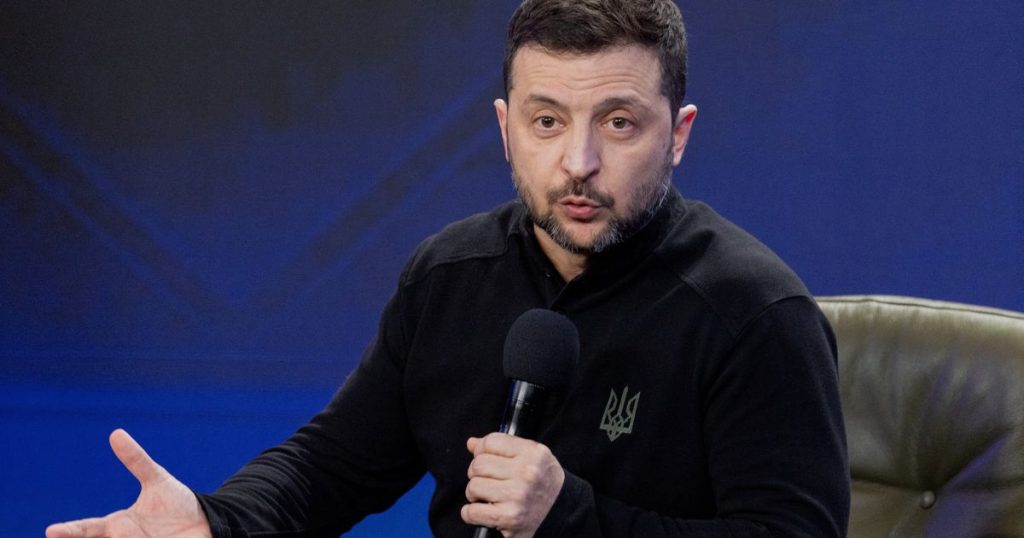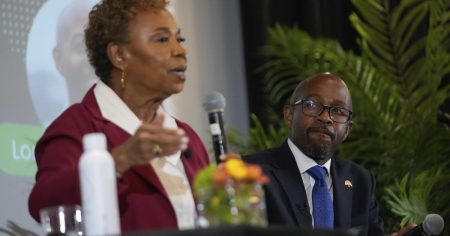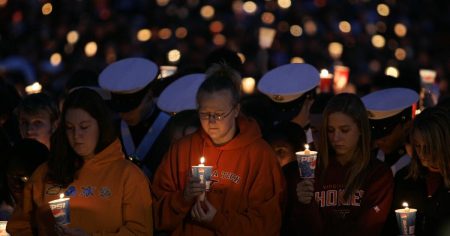In a heartfelt address marking the third anniversary of Russia’s invasion of Ukraine, President Volodymyr Zelenskyy made a poignant declaration: he is willing to step down as president if it would bring about peace and secure Ukraine’s membership in NATO. This extraordinary offer underscores the profound personal and national sacrifices considered in pursuit of peace. Zelenskyy’s statement, made at a forum in Kyiv, was in response to a journalist’s inquiry, highlighting the emotional weight of leadership amidst war. His willingness to relinquish power for the sake of his country’s security resonates deeply, reflecting the human cost of conflict and the desire for stability.
The backdrop of Zelenskyy’s announcement was a relentless wave of Russian aggression, as Ukraine faced the largest drone attack since the conflict began. Over 200 drones were launched, with Ukrainian forces successfully intercepting 138, yet the assault still claimed a life in Kryvyi Rih. This stark reminder of ongoing violence contrasts sharply with the diplomatic efforts unfolding on the international stage, as leaders navigate the complex geopolitical landscape.
Recent shifts in U.S. foreign policy under President Donald Trump have introduced new anxieties for Ukraine. Trump’s unexpected alignment with Russia and suggestion that Ukraine initiated the conflict have sparked fears of a settlement that bypasses Ukrainian interests. Zelenskyy has expressed concerns that such a resolution could compromise Ukraine’s territorial integrity and leave it vulnerable to future aggression. These fears are compounded by Trump’s characterization of Zelenskyy as a “dictator” for not holding elections during martial law, despite the legal prohibitions in place.
Amidst these tensions, economic and strategic discussions continue, with Ukraine considering a deal to provide the U.S. with rare earth minerals. Valued at $350 billion, these resources, largely in Russian-occupied areas, represent a significant potential contribution to global markets. Ukrainian officials emphasize the need for any agreement to align with national interests and security guarantees, reflecting a cautious approach to leveraging these resources for broader strategic benefits.
European leaders, led by the U.K., France, and others, are intensifying efforts to counterbalance Trump’s stance. The U.K. announced new sanctions against Russia, targeting its military capabilities and revenue sources. Simultaneously, British Prime Minister Keir Starmer and French President Emmanuel Macron plan a joint visit to Washington, aiming to dissuade Trump from abandoning Ukraine. Their mission underscores the importance of a unified European front in ensuring Ukraine’s voice is heard in any peace negotiations.
In contrast, Russian President Vladimir Putin’s Defender of the Fatherland Day address reaffirmed Russia’s military commitment, praising soldiers and promising enhanced support. This rhetorical stance, coupled with ongoing attacks, highlights the entrenched positions in the conflict. As the international community advocates for Ukraine’s future, the human dimension of the war remains paramount, with leaders and citizens alike yearning for a resolution that restores peace and sovereignty.









